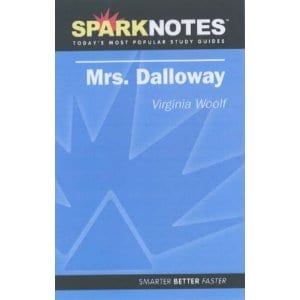 SparkNotes are abridged versions of books similar to CliffsNotes that are designed to quickly bring you up to speed on a book, or to help you in your study of some of the great works of all time. But can they compare to actually reading the book?
SparkNotes are abridged versions of books similar to CliffsNotes that are designed to quickly bring you up to speed on a book, or to help you in your study of some of the great works of all time. But can they compare to actually reading the book?
Overview
The use of study guides for books has been around for several decades and it’s been a proven method of learning at colleges and universities as well as in high school. Some of the classics have been analyzed again and again and now the basic points of the books are well known by many professors and literature gurus. They’ve been able to sum up this knowledge and present it in a concise format for the benefit of others.
The Claim
The main claim of SparkNotes is that they can help you make sense of what you’re reading when your teachers aren’t getting it done. The point of all of their study guides is to give you the general outline of a story so that you don’t miss important plot points, and also give detailed analysis so that you can get insights into a book that you might not have picked up on if you just read it by yourself.
The Hype
For a long while CliffsNotes was the default study guide for books, and their distinctive black and yellow guides were a common site on college campuses. But SparkNotes gained a steady and loyal following since their development by offering the same caliber analysis and summaries for free on the Internet.
The Cost
SparkNotes is free, as the site is supported by online advertising. Because there is no out of pocket expense for the user, it’s hard to compare it to competing products where you have to buy an actual book. CliffsNotes has since started offering their books online and in app form so there is still competition in regards to who can provide a better quality experience.
The Commitment
This should reduce the amount of time you have to spend trying to figure a book out, or to understand what is going on. At the same time you could end up delving further into a book than you otherwise would, analyzing it more, taking more notes, and spending longer than just merely reading it once to get the gist.
Evaluation
SparkNotes has a few different ways for you to use their content. You can get the text version, or you can get video recaps of the books you’re reading, or that you just want to know about. This makes it very convenient, and since it’s free and online and also has mobile apps you can have the info wherever and whenever you need it.
There really isn’t any reason we could find not to use SparkNotes. The information they provide is university-caliber and since you don’t have to pay to use it it’s basically something you can turn to again and again for any book you’re reading. You can even simply read the plot summaries and have an idea of what a book is like without having to read it, although that might not be recommended if you’re taking a class on it, but more as a hobby or pleasure reading.
Final SparkNotes Review
SparkNotes has saved countless hours for students of literature, and has helped the casual reader understand more of what they’re reading in less time. For this they’re getting our Thumbs Up rating and it’s recommended that you give it a try if you’re ever having trouble digesting a book, especially the more complex ones with sweeping story arcs and several characters.
Our Recommendation
How you use these study guides is up to you. Some like to read the plot summary so they have an idea of what’s to come when they read the book. Others like to read the book first and then read the notes and analysis to see if it lines up with what they’ve just read and if they drew the same conclusions. You’ll have to do a bit of experimenting to see what works best for you.



It definitely has two ways of working helping students out. Either by making things easier to grasp or as a means to cheap on their exams. I haven’t used them myself but I have skimmed through them at bookshops. They do a great job at summarizing the plot and I can see how this could’ve saved a lot of time and confusion in certain subjects in school. I agree with Amanda G that it’s not necessarily a lazy person’s way out and just a great resource available on the net. But like David said, it’s still lacking quite a bit though. I’d love to see how they improve on this.
I love the Sparknotes website, but I do not own any physical copies of Sparknotes for books. I just use the site as a resource to learn about a book I have not read or look into details that I forgot on a book I have already read. I also used to utilize it when I was in school because it was a great way to reinforce the most important plot elements and characters. I remember using the free tests on the site itself to boost my studying power. It really did help. What I hate, though, are students who use them in place of actually reading the books. They are missing out on a lot of great literature and details by doing so.
I feel Sparknotes, like Cliffnotes, are a great tool to help students (or readers in general) better understand a novel, but they should not be used as a substitute of reading the novel. However, they will always be used in that way and so if we just excuse that as a necessary evil, then for everyone else it will be a useful addition to reading a book and understanding some things that you may have missed. But I am sure any author would take offence to reading the Sparknotes over the actual book.
I have to agree with Kaila. I used something similar when I was in high school, and now I regret doing it. I’ve been caught not reading the actual novel once or twice, because the book I used had left out some things and the teacher asked me specifically about them. Maybe SparkNotes is better, but in my opinion it still shouldn’t be used, especially in high school, when you usually have the time needed to read the novel. Most of them are great books and should be read during those years. The only time you should use SparkNotes, or similar books, is after you’ve read the novel, in case you’ve missed something.
That’s a good way to look at it, I too am a college student and though I don’t have two part-time jobs I do know how important time management is when you have a full schedule. Sparknotes really is a great tool for when you just don’t have the hours or even days to read a book. As far as recreational reading goes I feel like Sparknotes is kind of lacking in that their library doesn’t seem as large as it could be.
I just read the review for sparknotes.com and I must say it definitely is a good idea and a great tool for students. I personally am a college student and I would most certainly use sparknotes to assist me in better understanding a book. My approach though would probably be to read the book first and then use sparknotes to go over it again more concisely and see if I missed anything or didn’t quite understand something that was intended to be more profound. There is however one book that I would like to see on sparknotes (it’s not there, I checked) is a book by J.R.R. Tolkien called “The Silmarillion.” I myself tried to read this book but it is extremely hard to follow mostly for two reasons, one: there’s a lot going on in the plot with many different characters, and two: because of the writing style that Tolkien uses in this book only. I really would like to grasp all that is going on in this book and I think sparknotes would be great for “The Silmarillion.” That brings me to the downside, at least for me, I’m not sure how extensive sparknotes’ library actually is; like I said I checked for “The Silmarillion” and found practically every other book Tolkien has written, but not that one. So, I really do think sparknotes is a good idea and a great tool but I guess I just don’t know its limits.
SparkNotes are awesome. Granted, they can be abused pretty easily, but so could CliffsNotes. I think SparkNotes have the same easy-to-read plain language, and different aspects of the story (character summaries, plot summaries, chapter breakdown, themes/motifs, symbolism, etc.) are all separated out so you can pinpoint what you need. I don’t think they should be used for every book–To Kill a Mockingbird is just too quick of a read to use the SparkNotes. Just like with CliffsNotes, you really lose the author’s style and the feeling of the piece if you read the SparkNotes first (or don’t read the book at all). I would still use them sparingly, but you can’t beat ’em since they’re free!
I’m only writing towards the text versions of SparkNotes and not the video recaps, but I do commend them for catering towards different learning styles. For anyone who is a self-described multi-media learner this just might be the summary study guide made just for you. I was surprised to find so many titles readily available. The content outline is easy to follow, and really the summaries/plot synopses are well-written. I don’t encourage relying on SparkNotes as a replacement to reading the actual book, I still think that these guides are most effective as complements to doing the actual reading, but all in all they do make a fine study guide for anyone needing a quick resource to guide them through the actual written work they are studying, plus you can’t beat a free resource.
Spark Notes is absolutely wonderful. I am convinced that this is half responsible for me passing my classes this last semester. The fact that it is free and available on the web cannot be beaten. Some people say this is the lazy man’s way out of learning, but I beg to differ. It is pretty hard to maintain the college lifestyle when you attend school full-time and also work 2 part-time jobs, but these Spark Notes are there and help things become much easier. I highly recommend that everyone use them if you are trying to make it through classes and achieve a great grade.
I used to work in a library and if I learned anything about teens it’s that the majority loooooooooovvvves a good version of SparkNotes. Even if they find themselves reading the whole book assigned in their class, they have a hard time interpreting the plot and the meaning behind it. This is where SparkNotes can really save the day and their paper. Embarrassingly, it can also save the day for a librarian who finds a piece of literature a little confusing. While the essence of SparkNotes is very similar to CliffNotes the fact that they are easily accessible on the internet and for FREE makes them a winner in my mind.
I agree with some of the commenters have said already. Rebecca has a good point, that SparkNotes should only really be used in a pinch. That’s how I’ve used it before.
As an English major, I usually have a lot of reading, which I enjoy. When I’ve run out of time, though, I have used SparkNotes and it was a reliable source to find out what I didn’t have time to read. I felt really disappointed when I used SparkNotes, though, because it takes the enjoyment out of reading the book. Students in my high school English class have also gotten in trouble for reading the SparkNotes instead of the actual book. My teacher could tell because students were talking about symbols in the book that a high school student wouldn’t typically think of on their own.
Spark notes are great. Why? Well, CliffsNotes, the original source of abridged literary material online will charge you beyond the introductory pages- SparkNotes are free!
So what it really comes down to is why are you interested in a particular book? If you love to read, then SparkNotes could be a really great place to come when you’ve finished- see if you missed anything regarding the themes or motifs. But if you find yourself having to read a particular book, say, for school perhaps? Then this service is INCREDIBLE! I’ve used them a bunch of times and found that I could literally get away without having to read the book at all! Not that I condone that sort of thing, I love reading, but if you’re up against a huge reading list, or if you just want to sound smarter in conversation, then SparkNotes does all the hard work for you. Definitely recommend.
Spark Notes are like using handfuls of flour on a kitchen fire if you don’t have an extinguisher – they get the job done, but should only be used in a pinch. I have found the best thing about them is the way they help me internalize subjects or plot lines that I’m really not all that interested in. My mind wanders unless it’s a subject or story I’m WANTING to read, and so in those cases it’s like being thrown a lifeline to be able to read through the main points. That’s what I tried to impress upon my daughter when she was assigned a mind-boggling amount of reading in high school: do not miss the marvelous feeling experienced with some of the classics, but for heaven’s sake – don’t suffer under a burden of words you don’t care about.
I agree! Spark Notes are amazing. They helped me the most when I had to read books that were hard to follow and really understand the meaning behind the text. With all the distractions of life nowadays, it’s rare for people to take the time to actually sit down and read a book from beginning to end. Throw in a complex storyline and it makes reading that much less appealing. Spark Notes should be used as a guide to help you better comprehend the story at hand. I don’t feel it is meant to be the end all be all to understand what a book is really about.
There are basically two reasons for using Spark Notes, and neither is good. Many people turn to this product either due to confusion or laziness, instead of working harder on the text (or reading it at all). That being said, I would not have maintained such a good GPA in high school and college without it. Who has the time to read ALL your homework? Spark Notes provide a basic context and understanding of a whole array of books, and they can at least provide you with a rudimentary grasp of the plot, characters and themes. Or, if you’re reading a very complex book, let’s say James Joyce’s “Ulysses,” you will likely need some assistance in understanding what’s going on even if you read it diligently. Spark Notes are great when you need them, and I’m happy they exist, but you must refrain from using them too often. Your brain will thank you.